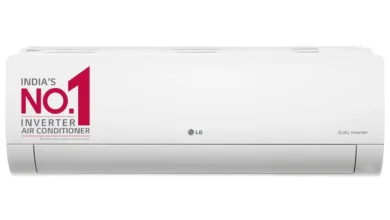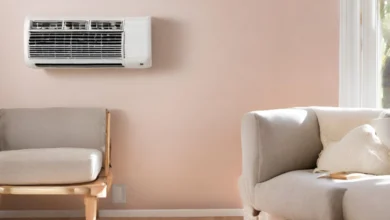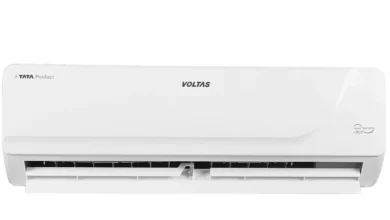Energy Efficiency and the Importance of AC Maintenance

In the dynamic interplay between modern living and environmental responsibility, the integral role of air conditioning (AC) systems in enhancing our comfort is unmistakable. Yet, amid the cool breeze of conditioned air, there lies a crucial responsibility—maintaining the efficiency of these systems. This comprehensive exploration aims to unveil the intricate relationship between energy efficiency and the often-overlooked hero, AC maintenance, delving into various aspects such as thermal comfort, air quality, lighting, and the integration of smart technologies.
Also read: Best AC in India 2024
1. Grasping the Essence of Energy Efficiency
1.1. The Pillars of Sustainable Living
Energy efficiency stands as a cornerstone in the pursuit of sustainable living. It involves optimizing the use of energy resources to achieve maximum output with minimal waste. In the context of air conditioning, energy efficiency is not just a buzzword but a vital consideration that holds the key to environmental conservation, cost savings, and a greener future.
1.2. AC Systems: A Significant Contributor to Energy Consumption
Air conditioning systems are major players in the energy consumption landscape. In both residential and commercial spaces, AC units often account for a substantial portion of electricity usage. Understanding and enhancing the energy efficiency of these systems is crucial not only for economic reasons but also for mitigating the environmental impact associated with excessive energy consumption.
2. Navigating the Nexus Between AC Efficiency and Regular Maintenance
2.1. The Lifecycle of an AC System
Air conditioning systems, like any mechanical apparatus, undergo wear and tear over time. Dust, debris, and general wear can lead to reduced efficiency, increased energy consumption, and, if left unaddressed, potential breakdowns. Regular maintenance is the key to extending the lifecycle of AC units, ensuring they operate at peak efficiency throughout their service life.
2.2. Dirty Filters and Reduced Efficiency
One of the primary culprits behind reduced AC efficiency is a dirty or clogged filter. Over time, filters accumulate dust and debris, obstructing the airflow. This impedes the system’s ability to cool the air efficiently, leading to increased energy consumption. Regularly changing or cleaning filters is a simple yet effective maintenance practice that significantly contributes to energy efficiency.
2.3. Condenser and Evaporator Coil Maintenance
The condenser and evaporator coils are integral components of an AC system responsible for heat exchange. Accumulation of dirt on these coils hampers their heat transfer capabilities, forcing the system to work harder to achieve the desired temperature. Routine maintenance, including coil cleaning, facilitates optimal heat exchange, reducing energy consumption and promoting efficiency.
3. The Economic Symphony of Energy Savings and Cost Efficiency
3.1. The Financial Benefits of Efficient AC Systems
Energy-efficient AC systems translate directly into cost savings for homeowners and businesses alike. A well-maintained AC unit operates more efficiently, requiring less energy to achieve the desired cooling effect. This, in turn, leads to lower electricity bills, offering a tangible financial incentive for investing in regular maintenance practices.
3.2. The Long-Term Economic Impact
While the upfront costs of AC maintenance might seem like an additional expense, the long-term economic benefits far outweigh the investment. Regular maintenance not only prevents costly repairs and replacements but also ensures that the system operates optimally, maximizing its energy efficiency and minimizing ongoing operational expenses.
4. Environmental Conservation Through Efficient AC Systems
4.1. Reducing Carbon Footprint
The environmental impact of energy consumption is a global concern, and air conditioning contributes significantly to this challenge. Energy-efficient AC systems, facilitated by regular maintenance, reduce the overall electricity demand. This not only lowers individual carbon footprints but also aligns with broader initiatives for environmental conservation and sustainability.
4.2. Optimizing Resource Usage
Energy efficiency is synonymous with resource optimization. By ensuring that AC systems operate at their peak efficiency, maintenance practices contribute to responsible resource usage. This is particularly crucial in regions facing energy challenges, where the judicious use of electricity becomes a collective responsibility.
5. Preventing Unplanned Downtime and Disruptions Through Maintenance
5.1. The Disruptive Impact of AC Failures
AC breakdowns can be more than an inconvenience; they can disrupt daily life, business operations, and overall comfort. Unplanned downtime due to a malfunctioning AC system not only leads to discomfort but can also have cascading effects on productivity, customer satisfaction, and employee well-being.
5.2. Preventive Maintenance for Reliability
Preventive maintenance is a proactive approach to mitigating the risk of unplanned downtime. Regular inspections, cleaning, and component checks allow technicians to identify potential issues before they escalate into major problems. This preventive approach ensures the reliability of AC systems, minimizing disruptions and maintaining a consistent level of comfort.
6. The Role of Professional Maintenance Services in the Symphony
6.1. Expertise in Action
While some aspects of AC maintenance can be performed by homeowners, professional maintenance services bring a level of expertise that ensures thorough and comprehensive care. Professional technicians have the knowledge and tools to address intricate components, diagnose potential issues, and fine-tune the system for optimal performance.
6.2. Tailored Maintenance Plans for a Harmonious Tune-Up
Professional maintenance services often offer tailored plans that align with the specific needs of an AC system. These plans may include regular check-ups, filter replacements, coil cleanings, and other essential tasks. The systematic and scheduled nature of professional maintenance plans ensures consistent care and contributes to the long-term efficiency of the AC unit.
7. Embracing Smart Technologies for Enhanced Efficiency
7.1. The Integration of Smart Thermostats
The marriage of AC systems and smart technologies is transforming the landscape of climate control. Smart thermostats, equipped with sensors and programmable features, optimize the cooling process based on occupancy patterns, external temperatures, and user preferences. This intelligent approach enhances energy efficiency, making smart thermostats valuable tools in the quest for sustainable and efficient cooling.
7.2. Remote Monitoring and Diagnostics: A Technological Sonata
Smart technologies also facilitate remote monitoring and diagnostics. This means that homeowners and facility managers can receive real-time insights into the performance of their AC systems. Any deviations from optimal efficiency can be identified promptly, allowing for timely interventions and adjustments.
Conclusion
In the intricate dance between energy efficiency and the importance of AC maintenance, the symbiotic relationship is undeniable. Regular upkeep of air conditioning systems not only ensures optimal performance and reliability but also contributes to broader goals of environmental conservation and cost savings. As we embrace the era of smart technologies, the landscape of climate control is evolving, offering innovative solutions for sustainable and efficient cooling. By recognizing the nexus between energy efficiency and AC maintenance, homeowners and businesses alike can pave the way for a future where cool comfort coexists harmoniously with responsible resource usage, creating a symphony of environmental stewardship and economic prudence.






